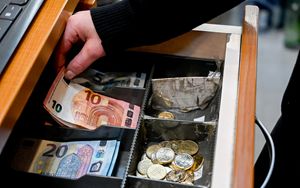(Finance) – The changeover from kuna to euro in Croatia was smooth and efficient, according to a report by the European Commission which analyzes what has happened since the beginning of the year. Indeed, Croatia joined the euro area on 1 January 2023, almost ten years after joining the European Union (1 July 2013), becoming the 20th member state to use the single currency . In particular, the report highlights that 61% of Croatians perceived the changeover to the euro as “smooth and efficient”, while 88% believe they were “knowledgeableon the single currency
THE preparations for the changeover to the euro “yes they are carried out according to plan‘, with the Croatian National Bank providing business customers with euro cash three months before the switchover. In addition, a sufficient number of euro coin starter kits were provided to the public and businesses were able to order euro cash from institutions finance well in advance.
There double circulation of kunas and euros for two weeks “it went well”. On 1 January already 70% of all ATMs were dispensing euro banknotes, while on 15 January 2023 euro banknotes could be withdrawn at any ATM in the country.
The cash in kunas it can still be changed at commercial banks until the end of 2023. Thereafter, kuna coins can be exchanged at the Croatian National Bank until the end of 2025, while the latter changes kuna banknotes without any time limit.
“The impact of unjustified price increases on aggregate inflation appears to have been relatively modest and broadly in line with what was observed in previous changeovers to the euro, based on a preliminary assessment of available data,” the document reads.
